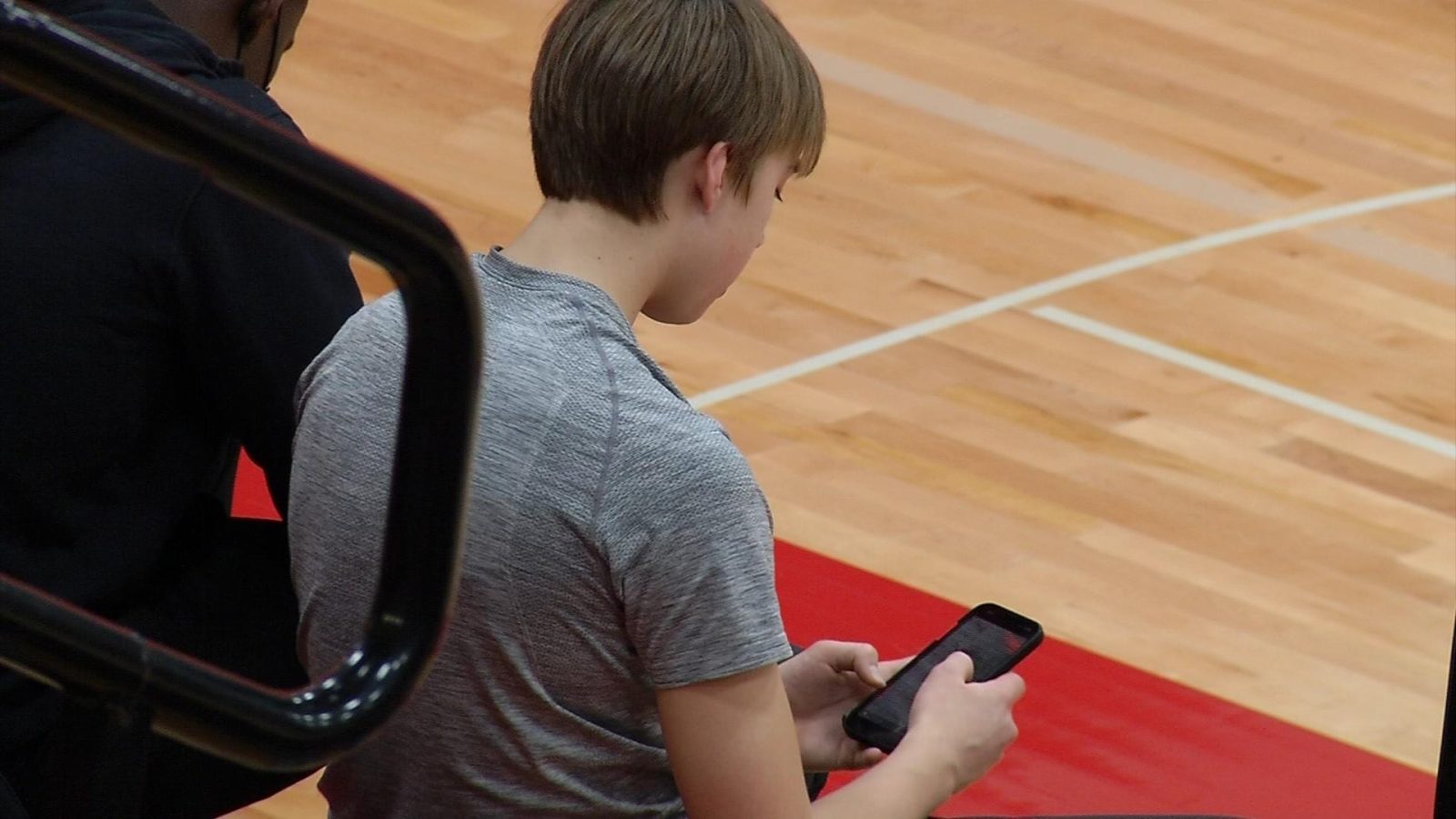Robbinsdale School District Tightens Cell Phone Rules for Students
The Robbinsdale School District is tightening rules for cell phone use in classrooms as students return to campus this fall.
High schools in the district are asking students to keep their phones stowed away during class instruction. At middle schools, students will be asked to keep their phones locked up throughout the school day.
“The phone usage after COVID was much higher than it was pre-COVID, and kids, that’s what they were doing when they were at home,” said Armstrong High School math teacher Tim Lloyd. “The earbuds are hard. Hoods are up and you don’t know if the earbuds are in.”
District teachers were feeling frustrated with electronic device use after the past school year, according to Armstrong Principal Erick Norby.
Students were “not listening to instruction, then asking the questions later on that the teacher already addressed,” Norby said.

Robbinsdale Schools is tightening rules for cell phone use in classrooms as students return to campus this fall.
‘I Think It’s Reasonable for 50 Minutes’
Issues with devices went beyond in-class distractions.
“We really noticed a lack of student engagement, felt like there’s some isolation, and a lot of mental health issues and the cyberbullying,” Norby said. “I have four kids of my own. Two of them are seniors. And they have an addiction problem to their phone. And I see it as a parent.”
As a result, new guidelines from the school ask students to refrain from using their devices without permission from a teacher.
“I think it’s reasonable for 50 minutes,” Norby said.

High schools in the Robbinsdale district — including Armstrong High School — are asking students to keep their cell phones stowed away during class time.
Three Strikes
The school is starting a three-strike policy. The first time a student is caught using their device, their teacher will ask them to put it away. The second time, the district may call the student’s parents. The third time, district staff may confiscate the student’s cell phone for the rest of the day.
Teachers will not be confiscating phones, Norby said.
“We will have support staff, we’ll have principals, we’ll be handling phones,” he said. “We’ll lock them up if we need to. But really it’s about partnering with our parents.”
Lloyd said he is glad to not be in charge of confiscating phones.
“It’s a little infringement on the relationships that need to be built in the classroom,” he said.
Students with special circumstances like a medical condition can make arrangements for cell phone use at school.
Norby said parents have been largely supportive of the proposal.
“I’ve heard not one negative comment,” he said.
The goal is not to take away cell phones, Norby said.
Lloyd said he hopes to see “more interaction between student and student, and between student and teacher.”
Until that goal becomes a reality, it may take a big effort to pry students away from their screens.
“It’s going to take us two-to-four weeks to do it, it’s going to take time,” Norby said. “But [students will] adjust and they’ll be just fine.



